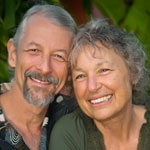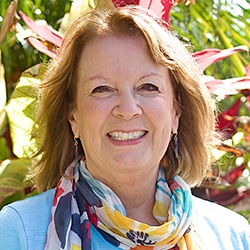

NVC Resources on Exercises or Practices
-
Practice radical honesty and integrate NVC into daily life through demos, role-play and exercises.
-
Awaken creativity and self-awareness through color, line, and emotional expression.
-
In this practice group class, certified CNVC trainers Jim and Jori Manske are facilitating the exploration of the topic of Mourning using the three modes of NVC: self-empathy, honesty and empathic presence. You'll learn how to accept a loss, let yourself feel the sadness and all the emotions, and allow yourself to grieve.
-
Shifting to a needs-based perspective is one of the most powerful—and challenging—aspects of integrating Nonviolent Communication (NVC) into daily life. In this short video, Mary Mackenzie offers three simple, practical tips to help you cultivate needs consciousness and transform how you experience your world and relationships.
-
Trainer Tip: Find your deepest need. Then notice when you do things, or have done things, that keep you from meeting your most important need. And then take conscious action that is in alignment with the need you want to meet.
-
Recalling Krishnamurti, Marshall referred to the capability of distinguishing observation vs observation mixed with evaluation as "the highest form of human intelligence." Read on for an exercise to help practice the skill of observation in combination with mindful walking.
-
Because we affect one another it can be hard to know where to take responsibility and where to leave it with the other person. This means we need self empathy, and presence for another's struggles without compulsion to "make them happy" or bring them healthy change. You can then attend to the needs and to your choice about if and how you want to contribute with compassion. Respect them as autonomously in charge of their unique process of change. With this, you honor your life and theirs. And where, what, and how you will invest your precious life energy.
-
Trainer Tip: The surest way to enjoy life is to do things that meet your needs. If you don’t enjoy a particular activity, consider the need you hope to meet by doing it. For instance, for each item you want to do consider the needs you're trying to meet. Connect to the joy of that need. Then for each ask: “How would I feel if I delayed finishing this item?”. Consider which items you want to continue, pause, or reprioritize. This can help increase life enjoyment.
-
In a workshop, a hesitant white neurodivergent man faced a triggering reaction from a Global Majority transgender man. Uncovering their backgrounds, the facilitator addressed family dynamics and exclusion. A repair exercise fostered empathy, challenging assumptions and emphasizing the importance of equitable facilitation for a richer group experience.
-
Before you make a request you can connect fully to a time when your need was met. Notice how your request feels and sounds different from this place of aliveness. Excitement about meeting a need implies confidence and trust about moving forward together. Offer an invitation to find strategies that work for both of you.

Quick Links
Subscription Preferences
Stay In Touch!
Looking for ways to keep up with NVC Academy news, get special offers, free resources, or words of inspiration? Here are five ways to stay engaged:










